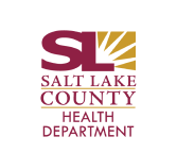SLCo Health Issues Warning for Jordan River and Canals Due to Harmful Algal Bloom
Presence of toxic algae means people and pets should stay out of the water
SALT LAKE COUNTY—This afternoon, the Salt Lake County Health Department (SLCoHD) issued a Warning Advisory for portions of the Jordan River and its connected canals due to the presence of a harmful algal bloom (HAB).
Laboratory testing to determine the exact level of toxins is pending. However, the visible presence of algae species known to produce toxins has prompted health officials to advise the following precautions for anyone visiting the Jordan River:
- Kayaking is permitted, but avoid contact with visible algae.
- Do not swim in the river or canals.
- Clean fish thoroughly and discard guts.
- Keep pets and animals away from the water.
- Do not drink the water.
The bloom in the Jordan River is an extension of a larger HAB currently affecting Utah Lake. Within Salt Lake County, the impacted stretch of the Jordan River extends from the southern county line north to approximately 9000 South. Harmful algae species have also been detected in connected canals as far north as 3000 South. Officials urge caution throughout the entire river and canal system, as algae and toxin levels can change rapidly.
This is a warning advisory only; no water bodies in Salt Lake County are currently closed to the public.
SLCoHD and the Utah Department of Environmental Quality will continue monitoring the Jordan River and connected canals and will update the advisory as conditions change.
While algae are a natural component of many freshwater ecosystems, certain conditions—such as high nutrient levels (often from fertilizer runoff), warm temperatures, abundant sunlight, and calm water—can lead to rapid growth. These blooms can contain cyanobacteria (commonly known as blue-green algae), which may produce toxins harmful to both humans and animals.
Symptoms of exposure may include:
- Headache
- Fever
- Diarrhea
- Abdominal pain
- Nausea and vomiting
- Skin irritation or allergic-like reactions
If you believe you’ve been exposed to toxic algae, call the Utah Poison Control Center at 800-222-1222 or contact your healthcare provider.
For more information about HABs statewide, visit the Utah Department of Environmental Quality.
